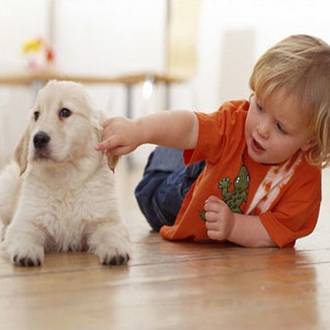Shop
02046
https://www.under5s.co.nz/shop/Hot+Topics+Articles/Health+%26+Wellbeing/Toddlers/Kids+pet+allergies.html
Kids pet allergies
|
How do you know if your kids have pet allergies? We take a look at what signs you need to look out for, dealing with pet allergies, testing for pet allergens and common culprits. Plus we share some helpful tips on living with your family pet and ideas on what to do if allergy symptoms persist.
|
You might also be interested in ...
Baby settling & sleep tips
Having trouble getting your baby to settle or to sleep? Many parents struggle with a sleepless baby so you’re not alone. The settling and sleeping will get easier, but in the meantime check out these helpful tips to make this frustrating time a little easier.
Reasons why babies cry & ways to soothe them
Babies communicate through crying. It’s their way of saying ‘I need you’ in some way. However sometimes trying to understand what they’re telling you through their crying can be a bit of a challenge, especially in those early months. Check out these common reasons why babies cry and what you can do to help.
join usJoin us on social media for all our latest news. |
sign upSign up and receive our latest newsletters. |
|







We take a look at what signs you need to look out for, dealing with pet allergies, testing for pet allergens and common culprits.
Plus we share some helpful tips on living with your family pet and ideas on what to do if allergy symptoms persist.
Kids pet allergies
1. Kids pet allergy symptoms
Allergic reactions may occur when your kids immune systems react to allergens found on your family pet.
Symptoms may include a runny or itchy nose, throat or eyes and they can also trigger a flare-up of eczema, hives or asthma.
The severity of the allergic reaction varies between kids (and adults), and depends on the circumstances, and may not happen straight away.
2. Testing kids for pet allergies
If you are not sure if your kids are allergic to animals, your GP or an allergist can carry out a test on them.
A good way to self-test is to see if they get itchy, swollen or watering eyes after patting an animal.
You can also try looking after a friend’s pet for a week or so to see what effect that has and if it triggers any allergies or asthma.
However, it is possible to have a reaction to one pet and not to another of the same species.
If you think your kids may be reacting to a pet (yours or someone else’s), speak to your doctor who can confirm your suspicion using skin prick tests or allergen specific IgE (RAST) allergy tests.
3. Common causes of pet allergies for kids
Dogs and cats are the most common cause of pet allergies. However furry little friends such as guinea pigs, rabbits, birds, mice and rats can also trigger allergies and asthma in some kids too.
Not only can horses trigger allergies or asthma in their human companions, they can also suffer from asthma-like problems (heaves) themselves.
Many people think that the pet’s fur or hair is the problem. However it isn’t the source, although it can carry the allergens.
The main source of allergens in dogs is saliva and in cats it's the sebaceous glands in the cat’s skin. Dander (shed skin particles) is also a source of allergens.
As all dogs and cats have dander and secretions, all breeds/types can potentially cause allergies. However, some animals may pose less of a risk than others because:
Cat allergy is more common (and typically worse) than dog allergy. Cats lick themselves which helps spread the allergens. The allergens are sticky so they glue themselves to hairs, dust particles and parts of your home.
Cat allergen can exist for years in homes that no longer have a cat – or have never had one!
The best pets for people with allergies and asthma are turtles, hermit crabs, fish or reptiles.
4. Reducing your kids exposure to pet allergens
Avoiding the allergens is the best way to manage an allergy. Although avoiding pet allergens can be difficult if the source is a much-loved family pet.
Taking steps to reduce your kids exposure to your pet may help. Although the most effective way though to avoid allergens from cats and dogs is to not have these pets in your home at all.
If your pet lives indoors, keeping it out of your kids bedroom significantly reduces allergen levels in those areas.
You can also try to reduce your kids exposure to allergens by ensuring:
5. What to do if your kids pet allergies persist
If allergic symptoms persist even after taking these steps, you can try gradually increasing the time your pet is kept outside, making sure they have a secure area with a safe, sheltered home.
The RSPCA can provide advice on appropriate environments for outdoor pets.
It may still take some months before allergen levels are reduced, particularly if your pet is a cat.
Unfortunately in some cases where symptoms persist, it may be necessary to move your pet permanently outside or to consider re-homing your pet to another family.
If you feel that you need to make this decision, please contact your local RSPCA for more advice.
6. Tips for visiting friends or relatives with pets
If you think your kids might be allergic to the pet of a friend or relative, try taking these steps when you visit:
7. What else can you try
Make sure your kids take their prescribed medicines to help keep their symptoms under control while you try to reduce their exposure.
You could also ask your doctor about allergen immunotherapy, also known as desensitisation, and whether this might be suitable for your kids.
Interestingly, there is evidence that exposure to pets in infancy may actually decrease the risk of allergies to animals in later life. Talk to your doctor for more information.
More kids allergy articles to enjoy:
Source: The Asthma Foundation’s Sensitive Choice® programme - helping you identify asthma and allergy-aware products
Image source: petsclan.com